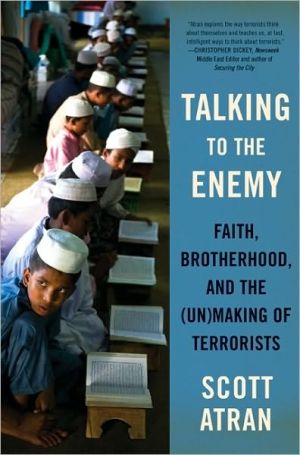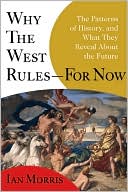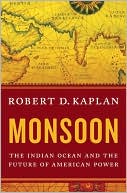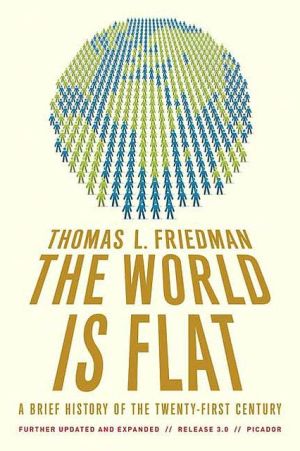Talking to the Enemy: Faith, Brotherhood, and the (Un)Making of Terrorists
Terrorists don't kill and die just for a cause.\ They kill and die for each other.\ \ In this rigorous and challenging work that combines the penetrating insight of The Looming Tower and the historical sweep and scope of Guns, Germs, and Steel, renowned social scientist Scott Atran traces terrorism's root causes in human evolution and history, touching on the nature of faith, the origins of society, the limits of reason, and the power of moral values.\ Atran interviews and investigates Al...
Search in google:
Terrorists don't kill and die just for a cause. They kill and die for each other. In this rigorous and challenging work that combines the penetrating insight of The Looming Tower and the historical sweep and scope of Guns, Germs, and Steel, renowned social scientist Scott Atran traces terrorism's root causes in human evolution and history, touching on the nature of faith, the origins of society, the limits of reason, and the power of moral values. Atran interviews and investigates Al Qaeda associates and acolytes, including Jemaah Islamiyah, Lashkar-e-Tayibah, and the Madrid train bombers, as well as other non-Qaeda groups, such as Hamas and the Taliban, and their sponsoring communities, from the jungles of Southeast Asia and the political wastelands of the Middle East to New York, London, and Madrid. His conclusions are startling, important, and sure to be controversial. Terrorists, he reminds us, are social beings, influenced by social connections and values familiar to us all, as members of school clubs, sports teams, or community organizations. When notions of the homeland, a family of friends, and a band of brothers are combined with the zeal of belief, amazing things—both good and bad—are possible: the passage of civil rights legislation, the U.S. Olympic hockey team's victory in 1980, the destruction of 9/11 and the attacks on the London Underground in July 2005. Atran corrects misconceptions about suicide bombers and radical Islam, explaining how our tolerance for faith enables extremists to flourish, and shows why atheism and science education have little effect. Going beyond analysis, he offers practical solutions that can help us identify terrorists today, prevent the creation of future terrorists, and ultimately make the world a safer place for everyone. Publishers Weekly Atran (In Gods We Trust) examines the motivations of terrorists in this sprawling and timely study. Drawing upon years of travel among Muslim communities from Indonesia to Morocco, extensive interviews with “would-be martyrs and holy warriors,” and detailed surveys, the author concludes that young jihadists aren’t merely motivated by political or religious fervor--they are powerfully bound to each other, they were “campmates, school buddies, soccer pals, and the like, who become die-hard bands of brothers.” Besides the importance of group dynamics in spawning terrorists, the author highlights the role of “sacred values”--core cultural values--that ”often trump other values, particularly economic ones.” Within this context, Atran argues that the best measures against today’s terrorist threat--which is more opportunistic, “more scattered and disjointed,” than it was before 9/11--are soft-power initiatives “to provide alternative heroes and hopes” within Muslim communities and to reframe sacred values. Atran’s intellectual reach is prodigious; his analysis of the underpinnings of terrorism is instructive, if often unconventional; and his provocative prescriptions merit debate and consideration. (Nov.)
\ Publishers WeeklyAtran (In Gods We Trust) examines the motivations of terrorists in this sprawling and timely study. Drawing upon years of travel among Muslim communities from Indonesia to Morocco, extensive interviews with “would-be martyrs and holy warriors,” and detailed surveys, the author concludes that young jihadists aren’t merely motivated by political or religious fervor--they are powerfully bound to each other, they were “campmates, school buddies, soccer pals, and the like, who become die-hard bands of brothers.” Besides the importance of group dynamics in spawning terrorists, the author highlights the role of “sacred values”--core cultural values--that ”often trump other values, particularly economic ones.” Within this context, Atran argues that the best measures against today’s terrorist threat--which is more opportunistic, “more scattered and disjointed,” than it was before 9/11--are soft-power initiatives “to provide alternative heroes and hopes” within Muslim communities and to reframe sacred values. Atran’s intellectual reach is prodigious; his analysis of the underpinnings of terrorism is instructive, if often unconventional; and his provocative prescriptions merit debate and consideration. (Nov.)\ \ \ \ \ Perspectives on Terrorism“Atran has given us a remarkably honest book, demonstrating that down-to-earth field work can give us a far superior understanding of what makes terrorists‘tick’ than whole armies of armchair counter-terrorist ‘experts.’”\ \ \ New Scientist“Recommendable not just for its vivid insights into the motivation of terrorists, but also for its study of Islamic radicalization and the anthropology of religion in general..”\ \ \ \ \ Kirkus ReviewsFrench-American anthropologist Atran (In God We Trust: The Evolutionary Landscape of Religion, 2002, etc.) travels widely interviewing terrorists and jihadists to uncover the driving force motivating religious violence.\ Wildly ambitious and meandering, the book is at once frustratingly ill-focused, historically keen and astutely humanistic. The author has conducted tremendous fieldwork over the years, studying "tribal" groupings from Muslim fighters in Sulawesi, Indonesia, to suicide bombers in Palestine, and delving into the root of sacred beliefs. Jihad is not necessarily "nihilistic and immoral," as Americans tend to believe, with their "constant diet of individualism" and dislike of looking to group action for justification of behavior. Atran's studies show rather that "imagined kinship—the rhetoric and ritual of brotherhood, motherland, family, or friends and the like"—has sharpened the religious instinct with its expression in irrational and illogical belief. Curiously, the author discovered that five of the seven suicide bombers of the 2004 Madrid train attack—as well as various "Iraq-bound martyrs"—spent formative years growing up in an ancient Moroccan barrio of Tetuán called Jamaa Mezuak, where the vanquished Moors had retreated after the defeat of Grenada in 1492. Atran wonders if these Mezuak soccer buddies were still playing out after all these centuries a "triumphant resistance to Christian conquest." The author examines in vivid detail the kinship among the Madrid bombers, and, earlier, the October 2002 Bali bombings masterminded by Indonesian militants. He attempts to establish how a terrorist network is formed—by attending the same madrassah, living in the same village family, and so on. Atran also traveled to Pakistan to inquire about clan loyalties and the Taliban, and looks at how the availability of resources and the intense competition for them dictate social structures. Though often scattered, the author's deep penetration into anthropological explanations of evolution, teamwork, blood sport and war attempt to define what it means to be human—and he does an admirable job in the face of far-flung research.\ Messy but revealing and passionate—enlightening for patient readers.\ \ \








